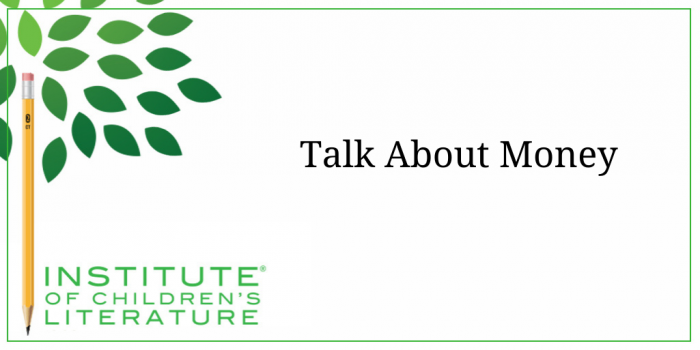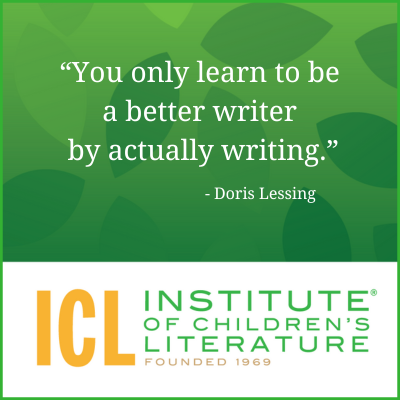1000 N. West Street #1200, Wilmington, DE 19801
© 2024 Direct Learning Systems, Inc. All rights reserved.
Beginning Tuesday, July 22, 2025 at 10 PM CT through Wednesday, July 23, 2025 at 4 AM CT, we will be performing scheduled maintenance to update our website.

 Magazine Writing that Pays
Magazine Writing that Pays Mid-sized or larger publishers also normally pay an advance. The idea behind an advance is that the publisher advances you the amount of money they expect to pay out in royalties and give it to you right away. Advances may be paid all at once or they may be tied to specific events in the publishing process (like half of the advance paid right away and half upon you making any required revisions). As long as you hold up your end of the contract, an advance never has to be given back to a publisher (even if the book doesn’t sell well).
Now a publisher plans an advance based on how well they expect this book to sell. In theory, they are trying to send you all of your royalties up front so that they won’t have to deal with future royalty checks and so that you will have money to sustain you as you write your next book. Thus, a publisher will pay a larger advance for a book they expect to sell really well.
Publishers are not the world’s best fortune tellers. Sometimes they pay an advance and the book sells better than they expected. If this happens, you’ll begin receiving royalty checks as soon as the amount of royalties exceeds the amount of the advance. This is called “earning out” and it often takes about a year. But even if your book never “earns out,” this does not mean the book failed. Remember, the advance was the publisher’s guess at how much they expected the book to earn. If you exceed that advance against sales that’s a happy moment for publisher and writer.
Some tiny publishers have begun giving token advances to try to look more like a mid-sized trade publisher. These advances of fifty to two hundred dollars may actually be all the money you ever see, but they aren’t really calculated based on the publisher’s expectation. With tiny publishers, how much you make tends to depend directly on how many books you personally can push sales for. If you’re a huge go-getter, you still are unlikely to get the kind of royalties that a large publisher can create (simply because there are different sales mechanisms in place) but you can see enough money to make the deal worthwhile. If you are a quieter, less market-focused writer, a small publisher might not be for you.
Mid-sized or larger publishers also normally pay an advance. The idea behind an advance is that the publisher advances you the amount of money they expect to pay out in royalties and give it to you right away. Advances may be paid all at once or they may be tied to specific events in the publishing process (like half of the advance paid right away and half upon you making any required revisions). As long as you hold up your end of the contract, an advance never has to be given back to a publisher (even if the book doesn’t sell well).
Now a publisher plans an advance based on how well they expect this book to sell. In theory, they are trying to send you all of your royalties up front so that they won’t have to deal with future royalty checks and so that you will have money to sustain you as you write your next book. Thus, a publisher will pay a larger advance for a book they expect to sell really well.
Publishers are not the world’s best fortune tellers. Sometimes they pay an advance and the book sells better than they expected. If this happens, you’ll begin receiving royalty checks as soon as the amount of royalties exceeds the amount of the advance. This is called “earning out” and it often takes about a year. But even if your book never “earns out,” this does not mean the book failed. Remember, the advance was the publisher’s guess at how much they expected the book to earn. If you exceed that advance against sales that’s a happy moment for publisher and writer.
Some tiny publishers have begun giving token advances to try to look more like a mid-sized trade publisher. These advances of fifty to two hundred dollars may actually be all the money you ever see, but they aren’t really calculated based on the publisher’s expectation. With tiny publishers, how much you make tends to depend directly on how many books you personally can push sales for. If you’re a huge go-getter, you still are unlikely to get the kind of royalties that a large publisher can create (simply because there are different sales mechanisms in place) but you can see enough money to make the deal worthwhile. If you are a quieter, less market-focused writer, a small publisher might not be for you.
 The benefit of work for hire is that the money is a sure thing and the writer is almost never asked to do any promotional activity. A work-for-hire writer is usually just a writer, not a publicist. So when you finish one job, you move on to the next. In adult publishing, work for hire is common in situations where you are ghost writing (both fiction and nonfiction), and not uncommon in nonfiction where the idea for the book or book series came from the publisher. In children’s writing, work for hire commonly includes both fiction and nonfiction. Work for hire jobs include board books, picture books, leveled reading programs, and novels. Some work for hire doesn’t involve the author getting any credit for the work, so the actual author’s name might not be on the book. For licensed character work, there may be someone else’s name on the book. So all of those things can color your choice of whether or not to sign on for work-for-hire. Pay can vary from hundreds of dollars to thousands. I’ve even seen pay offered as low as fifty dollars for a picture book. It’s important for writers to make wise choices about which projects to take on and to only sign contracts where the pay is worth your time.
So these are the ways in which you might be offered pay for your writing. The specific details will be outlined in your contract so read contracts carefully. It’s hard to say that one specific way is the best, so a wise author considers his or her options carefully and asks lots of questions. But in the end, there are few things that cheer me up like a check.
Here’s wishing you lots of them in your writing future.
The benefit of work for hire is that the money is a sure thing and the writer is almost never asked to do any promotional activity. A work-for-hire writer is usually just a writer, not a publicist. So when you finish one job, you move on to the next. In adult publishing, work for hire is common in situations where you are ghost writing (both fiction and nonfiction), and not uncommon in nonfiction where the idea for the book or book series came from the publisher. In children’s writing, work for hire commonly includes both fiction and nonfiction. Work for hire jobs include board books, picture books, leveled reading programs, and novels. Some work for hire doesn’t involve the author getting any credit for the work, so the actual author’s name might not be on the book. For licensed character work, there may be someone else’s name on the book. So all of those things can color your choice of whether or not to sign on for work-for-hire. Pay can vary from hundreds of dollars to thousands. I’ve even seen pay offered as low as fifty dollars for a picture book. It’s important for writers to make wise choices about which projects to take on and to only sign contracts where the pay is worth your time.
So these are the ways in which you might be offered pay for your writing. The specific details will be outlined in your contract so read contracts carefully. It’s hard to say that one specific way is the best, so a wise author considers his or her options carefully and asks lots of questions. But in the end, there are few things that cheer me up like a check.
Here’s wishing you lots of them in your writing future.
With over 100 books in publication, Jan Fields writes both chapter books for children and mystery novels for adults. She’s also known for a variety of experiences teaching writing, from one session SCBWI events to lengthier Highlights Foundation workshops to these blog posts for the Institute of Children’s Literature. As a former ICL instructor, Jan enjoys equipping writers for success in whatever way she can.
1000 N. West Street #1200, Wilmington, DE 19801
© 2024 Direct Learning Systems, Inc. All rights reserved.
1000 N. West Street #1200, Wilmington, DE 19801
© 2024 Direct Learning Systems, Inc. All rights reserved.
1000 N. West Street #1200, Wilmington, DE 19801
© 2024 Direct Learning Systems, Inc. All rights reserved.
1000 N. West Street #1200, Wilmington, DE 19801
© 2025 Direct Learning Systems, Inc. All rights reserved.
1000 N. West Street #1200, Wilmington, DE 19801
©2025 Direct Learning Systems, Inc. All rights reserved. Privacy Policy.